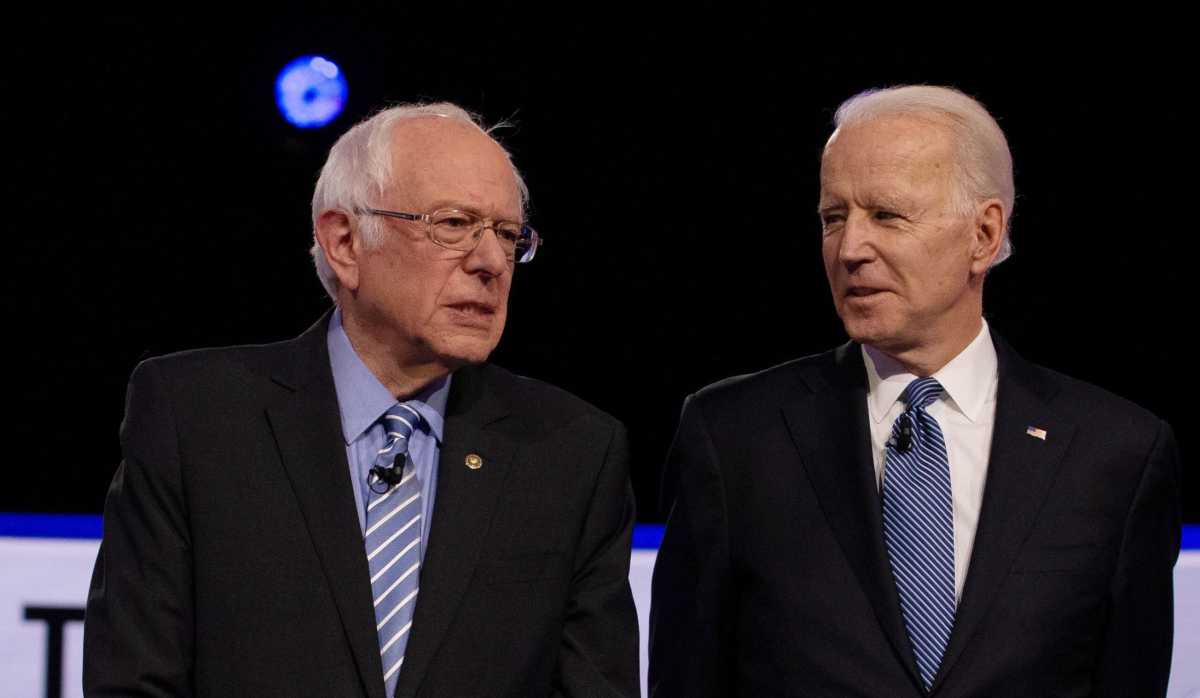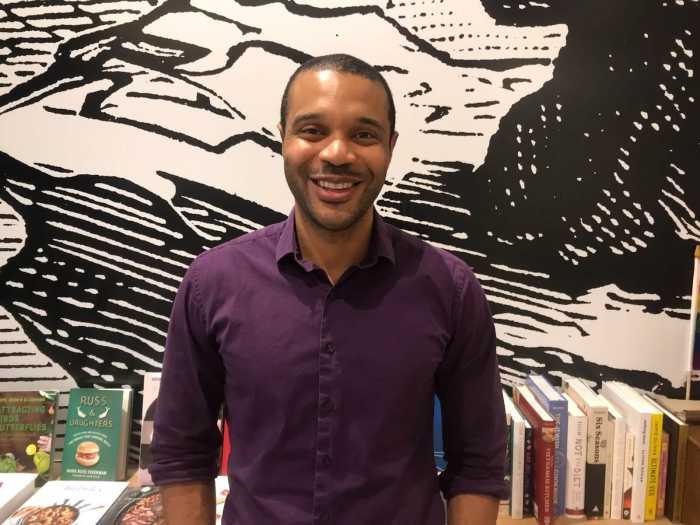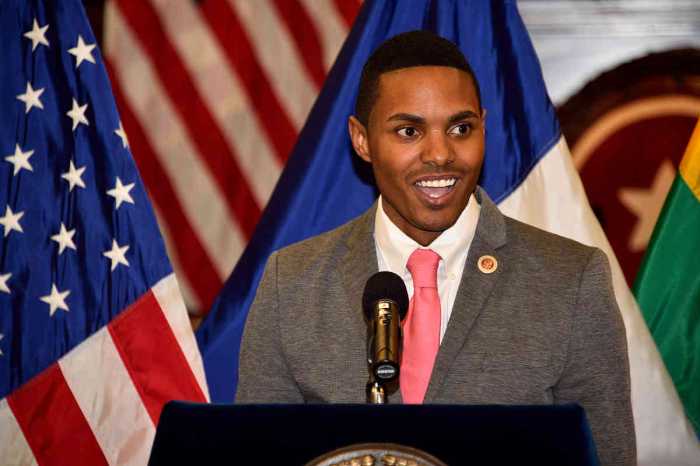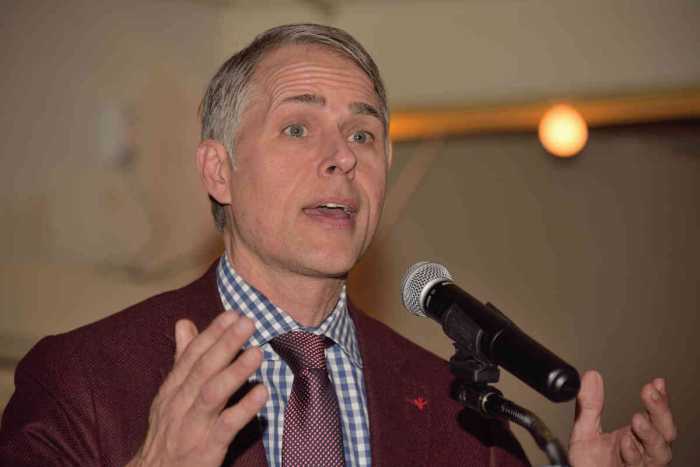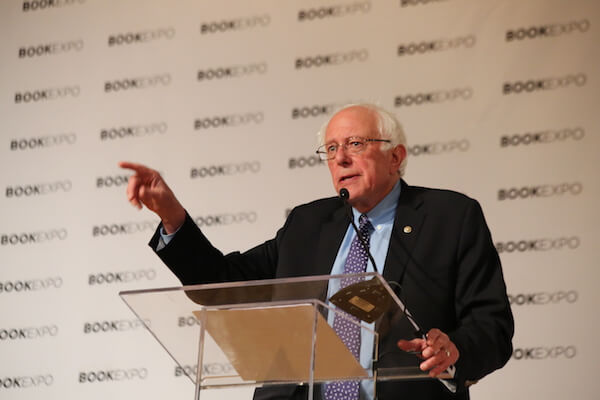Nine percent of Democratic voters on Super Tuesday identified as LGBTQ and 42 percent of them turned out for Vermont Senator Bernie Sanders, according to Edison Research exit polls spanning 12 of the 14 states that held primary contests on March 3.
The share of voters identifying as LGBTQ was twice as high as one leading estimate of the population of LGBTQ people in the United States. In 2018, Gallup reported its conclusion that LGBTQ individuals represent 4.5 percent of the American population.
Sanders performed the best among queer voters on an otherwise strong night for former Vice President Joe Biden, who scored victories in Alabama, Arkansas, Maine, Massachusetts, Minnesota, North Carolina, Oklahoma, Tennessee, Texas, and Virginia. Sanders won California, Colorado, Utah, and Vermont.
The candidates’ performance among LGBTQ voters, however, could only meaningfully be measured in the five states with large enough samples of queer voters — California, Maine, Massachusetts, Minnesota, and Texas.
While Sanders drew 42 percent of the LGBTQ vote in those states, Massachusetts Senator Elizabeth Warren followed behind with 22 percent. Nineteen percent of queer folks voted for Vice President Joe Biden and six percent voted for former New York City Mayor Michael Bloomberg, who exited the race on March 4. Out gay former South Bend Mayor Pete Buttigieg, who dropped out before Super Tuesday, still managed to get six percent of the queer vote, likely due to early voting in multiple states.
When broken down on a state-by-state basis, the share of the LGBTQ vote ranged between seven percent and 14 percent. Fourteen percent of voters in Maine identified as LGBTQ, for example, compared to 12 percent in Massachusetts; 10 percent in California, Texas, Oklahoma, and Vermont; nine percent in Colorado and North Carolina; eight percent in Minnesota, Tennessee, and Virginia; and seven percent in Alabama.
Of the 14 states, however, Alabama, Colorado, North Carolina, Oklahoma, Tennessee, Vermont, and Virginia did not poll enough people to break down LGBTQ voters’ preferred candidates. There were no exit polls at all in Arkansas and Utah.
Sanders won the LGBTQ vote in every state that produced sufficient data except for Maine, where Biden edged Bernie 36 to 31 percent. Sanders’ best state was Texas, where he garnered 49 percent of the LGBTQ vote compared to 21 percent for Biden, 15 percent for Warren, and eight percent for Buttigieg.
In California, Sanders grabbed 32 percent of the queer vote, followed by Warren’s 24 percent, Buttigieg and Biden’s 13 percent each, and Bloomberg’s 11 percent.
LGBTQ voters in Massachusetts — Warren’s home state — favored Sanders with 43 percent, while Warren got 30 percent and Biden had 14 percent.
Forty-four percent of Minnesota’s queer voters cast a vote for Sanders, but Warren managed to snag 34 percent. Biden came in third there with 21 percent of the LGBTQ vote.
The self-identified LGBTQ electorate on Super Tuesday was disproportionately made up of younger individuals — to a puzzling extent. Thirty-four percent of the LGBTQ voters on Super Tuesday were between the ages of 17 and 29, while 31 percent were between 30 and 44 years of age. Twenty-six percent of queer voters were between 45 and 64 years old and just nine percent were 65 or older.
Furthermore, a whopping 50 percent of LGBTQ voters identified as “very liberal,” which would be consistent with the ideological leanings of the younger electorate and is seemingly a key factor behind Sanders’ support among queer voters.
Another likely factor for Sanders’ success among LGBTQ voters is his single-payer Medicare-for-All platform. A Buzzfeed News and Whitman Insights Strategies survey of 801 self-identified LGBTQ voters from June of 2019 revealed that those voters rated healthcare as the top important issue for them in the 2020 presidential election and congressional races. The second and third-most important issues for LGBTQ voters in that survey were climate change and jobs/ economy, which are also priorities that Sanders has emphasized strongly.
Locally in New York City, most political clubs felt differently heading into the 2020 primary contests. The Stonewall Democratic Club of New York City, the Lambda Independent Democrats of Brooklyn, and the Lesbian & Gay Democratic Club of Queens endorsed Warren, while only the Jim Owles Liberal Democratic Club among queer Democratic clubs here threw its support behind Sanders.
Importantly, the vast majority of queer voters in the party remain opposed to President Donald Trump, who has sought to curtail queer rights on numerous fronts since he was elected in 2016. Just 14 percent of LGBTQ voters supported Trump in 2016 and only 12 percent in the 2019 Buzzfeed survey said that they would do so this year. In something of a warning shot to Democrats, however, while 73 percent said they would support “the Democratic nominee,” Seven percent responded that they would support a third party candidate and another eight percent said they would not vote.

